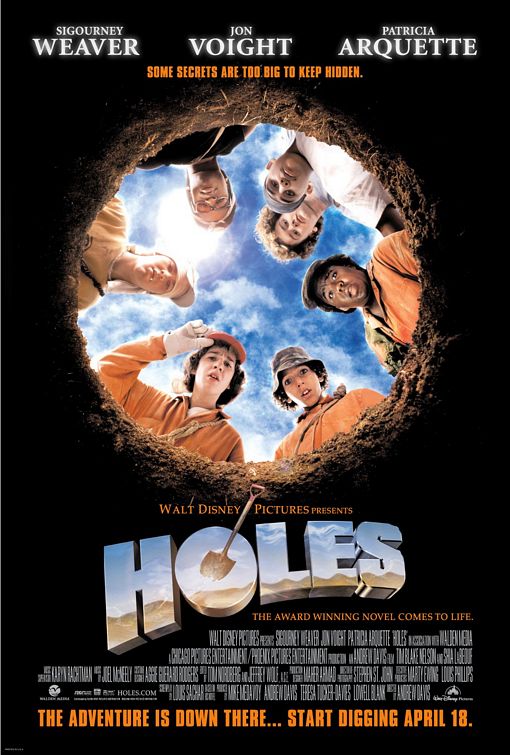
| None | Light | Moderate | Heavy | |
|---|---|---|---|---|
| Language | ||||
| Violence | ||||
| Sex | ||||
| Nudity |
Content:
(C, O, PC, B, AB, LL, VV, S, M) Light redemptive allegory with some occult elements that are lightly rebuked such as fortune teller who pronounces a curse and ghosts who could be simple visions, and some politically correct elements, as well as moral and immoral elements; 9 obscenities and 2 “Oh My G-d” profanities; violence includes man hit with shovel, man scratched with rattlesnake venom, woman bit by deadly lizard, man shot to death in boat, boy hallucinates rattler bite, man shoots deadly lizards, man knocked unconscious by shovel, vigilantes burn schoolhouse, outlaw shoots men and kisses them, outlaw shoots sheriff pointblank, boys fight, and boys almost die of thirst in the desert; light sexual innuendo and kissing; many shots of upper male nudity and woman buttons blouse; no alcohol; no smoking; and, theft, lying, intimidation, and bullying.
More Detail:
Based on the acclaimed children’s book, HOLES tells the story of young Stanley Yelnats, who “finds” a pair of stolen sneakers belonging to a famous athlete. Soon, he is picked up by the police and sentenced by the judge to reformatory camp in the middle of the desert.
Stanley’s father is a goofy inventor, also named Stanley, who is trying to get the odor out of sneakers. The grandfather, another Stanley Yelnats, insists that all of their bad luck stems from a curse.
As the movie slowly develops, the audience discovers in a flashback that a black fortune teller told Stanley’s great grandfather in Latvia how to raise a prize pig so he could marry the girl of his dreams. Madame Zeroni, the fortune teller, told great grandpa to carry a piglet up a mountain to a fresh stream every day. The pig would grow big and be a worthy dowry for the most beautiful girl in the town. She adds, solemnly, that at the end of the process great granddad must carry her up the mountain so she can drink the life giving waters, or he will be cursed for all eternity.
Although this story of his great grandfather is not revealed right away, young Stanley does think about the curse, especially when he gets to Camp Green Lake and finds out that it is a dried up lake bed supposedly in the middle of the Texas desert. This is a mean place where the teenagers have to dig holes in the hot sun to build their character. The sheriff is Mr. Sir, played brilliantly by Jon Voight, who is meaner than ever because he has just given up smoking. The boys are naturally mean. In a vile demonstration of meanness, the camp counselor, Mr. Pendanski, tells the littlest boy that he’s just downright stupid. Furthermore, the warden is supposed to be the meanest of them all.
Stanley, however, with a code of ethics and a good mind, seems to get along with minor beatings and intimidations. The little boy, Zero, whose real name is Hector Zeroni, only talks to Stanley. Much later, the audience discovers that Zero stole the athlete Clyde “Sweet Feet” Livingston shoes from the orphanage, and when the police chased him, he threw them off the bridge near Stanley.
Slowly, the story of Green Lake unravels too. Once upon a time, it was a beautiful lake owned by Mr. Walker, whose son had his eye on the buxom blonde schoolteacher, Kate. Kate, however, was enamored of Sam the black man who sold onions as a cure-all, and spent some time fixing Kate’s schoolhouse. When young Mr. Walker catches Kate kissing Sam, he gets a mob to burn the schoolhouse. Eventually, the vigilantes track down and shoot Sam. The rain stops when Sam is shot and the lake dries up.
Kate shoots the sheriff and kisses him. Thus, she becomes the bandit, “Kissing Kate.”
Young Mr. Walker searches for Kate’s loot from all her robberies. The warden, played by Sigourney Weaver, is Walker’s daughter. Camp Green Lake is her way of digging up the lake to find the treasure.
Although the dialogue dismisses the curse on Stanley’s family, it isn’t until Stanley carries Zero up to the top of the mountain (called “God’s thumb”) to the stream of life-giving water that the curse is broken and the story turns to the good.
The last third of this movie is rewarding, endearing, uplifting, and entertaining. The first third has so much trouble introducing the various threads of the story that the children sitting around me said that they were confused.
Those who are not confused may be bored except for the fine acting, staging and directing. Jon Voight alone is worth the price of admission.
Clearly, there are a lot of Christian messages here, from the stream of life-giving water, to carrying your brother’s burdens, to sacrificing your life for others, and many positive allegorical touches.
However, there are also some plot elements that seem to belie the refutation of the fortune teller’s curse. After all, as soon as little Zero is carried up the hill, Stanley’s father’s fortune begins to change. This nomimalistic event could be treated in a media-wise manner with children, but for the fact at the very end of the movie, after the credits, little Zeroni pronounces a curse on the audience. This is done in jest, but for those who believe in the biblical mandate against such invectives, it is not appropriate, and it will alienate many people who are the very audience for the movie. Thus, a little editing could improve the movie tremendously.
The filmmakers are dedicated to redeeming the media. They should be commended for their efforts.
Please address your comments to:
Michael Eisner, Chairman/CEO
Buena Vista Distribution Co.
(Walt Disney Pictures, Caravan, Hollywood, Miramax, & Touchstone Pictures)
Dick Cook, Chairman
Walt Disney Pictures
500 South Buena Vista Street
Burbank, CA 91521
Phone: (818) 560-1000
Website: www.disney.com


 - Content:
- Content: 






